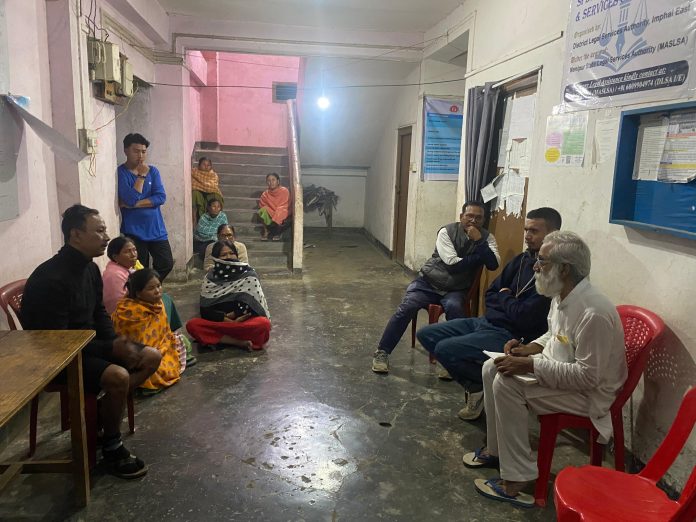In the wake of fresh violence in Manipur, mounting voices are demanding accountability from both state and central leaders. Human rights activist Irom Sharmila has urged Manipur Chief Minister N. Biren Singh to take moral responsibility and resign, citing his inability to restore peace in the violence-hit state. She also called on the central government to conduct a referendum to ascertain the will of the people and explore viable solutions to the crisis.

Sharmila emphasised the need for direct intervention by Prime Minister Narendra Modi to address the escalating tensions in the state. She further warned that the re-imposition of the controversial AFSPA in six police station areas of Manipur risks exacerbating the already volatile situation.
Congress President Mallikarjun Kharge has written to President Droupadi Murmu, urging her to intervene to protect the lives and property of Manipur’s residents. He criticised both the central and state governments for failing to restore normalcy and peace. Congress General Secretary Jairam Ramesh went a step further, holding Union Home Minister Amit Shah responsible for the crisis and demanding his resignation.
Magsaysay Award winner Sandeep Pandey, following his visit to five relief camps in Manipur on November 11-12, submitted a set of recommendations to the Deputy Commissioner of Imphal and the Directorate of Health Services, highlighting the pressing issues faced by displaced individuals:
- Relief camps report inconsistencies in cash and supply allocations. For instance, inmates at Phayeng High School received ₹1,000 five times since arriving, while those at Manipur Trade and Export Centre receive ₹80 per day twice a month.
- Despite repeated assurances, no compensation has been provided for houses and businesses lost during the violence. Even a promise of ₹1,000 per inmate before the Ningol Chakkouba festival went unfulfilled.
- Many inmates are eager to leave the camps and return to their villages, but safety remains a concern. The tragic case of Leichongbam Ibemcha, a 39-year-old woman shot while attempting to return to her village in November, underscores these risks.
- Women at Pravabati College camp report that government promises of sewing machines and income-generation tools have not materialised. Only one training session for mushroom cultivation was conducted, with no subsequent support.
- Mothers in Phayeng camp often sell government-provided supplies to fund their children’s education, sacrificing their own needs. Pandey recommends free education for these children under Section 12(1)(c) of the Right to Education (RTE) Act or full reimbursement of educational expenses.
- While doctors visit camps occasionally, they rarely bring medicines. Parents must travel to primary health centres for child inoculations, and emergency care is hindered by the lack of ambulances. Many inmates lack Ayushman Bharat cards, limiting access to private healthcare.
- The absence of ration cards is a significant hurdle for displaced individuals as they attempt to rebuild their lives.
- Camps urgently require blankets, warm clothing, socks, and shoes. In Samurou, families also requested tubs for basic utility purposes.
As unrest continues, demands for accountability from both Chief Minister N. Biren Singh and Union Home Minister Amit Shah are growing louder, with civil society and political opposition uniting in their call for justice and reconciliation in the embattled state.




